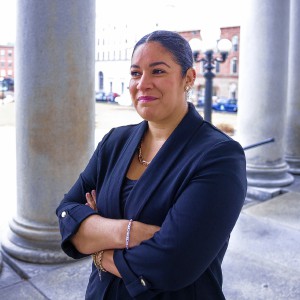Bill advances allowing parental opt-outs for LGBTQ+ topics in school

Holly Ramer//AP file photo
| Published: 05-13-2024 9:40 AM |
In early May, Democrats in the House defeated the “Honesty in Education Act.” The bill was the latest effort to require public school teachers to answer parents when they ask about changes to their child’s gender identity.
But another bill is moving forward that supporters say would give parents more control over their children’s instruction in schools – and opponents say would intrude on classroom instruction.
House Bill 1312 would allow parents to opt their children out of any “instruction or program of” sexual orientation, gender, gender identity, or gender expression.
Currently, state law allows parents to withdraw their children from classes related to human sexual education. HB 1312 would expand that ability to apply to the additional topics.
Under the existing process, parents must notify the school district in writing that they object to the class material. And the parents must propose alternative instruction that is agreed upon by the school district, and pay for it themselves if there is a cost.
HB 1312 would expand the withdrawal and require school district staff to notify parents at least two weeks in advance of any material that might fall into the category.
Separately, the bill would prevent school districts from requiring that teachers withhold information from parents about their child’s well-being – including information about their sexuality. Individual teachers could still choose not to answer questions from parents about their child’s sexuality, but school districts could not make it a blanket policy under the bill.
The legislation, which passed the House 186-185, appears likely to clear the Republican-led Senate, too; the Senate Education Committee voted to recommend that it pass, in a 3-1, party-line vote.
Article continues after...
Yesterday's Most Read Articles
 Concord may finally buy long-closed rail line with hopes of creating city-spanning trail
Concord may finally buy long-closed rail line with hopes of creating city-spanning trail
 New Cheers owners honor restaurant’s original menu while building something fresh
New Cheers owners honor restaurant’s original menu while building something fresh
 A look ahead at the ‘preferred design’ for Concord’s new police headquarters
A look ahead at the ‘preferred design’ for Concord’s new police headquarters
 New Hampshire targets sexual exploitation and human trafficking inside massage parlors
New Hampshire targets sexual exploitation and human trafficking inside massage parlors
 State rules Epsom must pay open-enrollment tuition to other school districts, despite its refraining from the program
State rules Epsom must pay open-enrollment tuition to other school districts, despite its refraining from the program
Supporters say the bill would give parents a greater say in how their children learn about sensitive topics. But opponents said the bill would empower discriminatory views against LGBTQ+ people, and that the notification process would be disruptive to teachers.
“The bill seems to be targeting, and I think stigmatizing, any instruction concerning LGBTQ+ people, and I think that this language really sends the message to LGBTQ+ students that their feelings and identities are something to be shunned, feared, potentially even censored, or not even acknowledged,” said Gilles Bissonnette, legal director of the American Civil Liberties Union of New Hampshire.
To Sen. Tim Lang, a Sanbornton Republican, the bill would encourage parents to communicate with their children about the topics – knowing that they were coming up in the curriculum – which he said could foster better connections between parents and children.
“Parents should have these discussions with their own children and not have teachers do this. This bill is the prompt for parents to have those conversations.”
Lang said the notification requirements would not prevent school districts from teaching the topics, but would rather allow parents to choose whether to participate in them. And he argued that the bill is not intended to allow parents to withdraw their child from materials that relate to LGBTQ+ people or movements in history.
“It’s just informative to parents,” he said. “Nothing stops the school from doing those classes. The class is allowed. That just says that if you do it though, because this is a sensitive topic, you need to notify parents.”
A class about Harvey Milk, the openly gay San Francisco politician who was assassinated in 1978, would not fall under the definition of instruction of sexual orientation, Lang said, because Milk was a historical figure. But any instruction directed at students themselves that delved into their own sexual orientations or gender identity – such as that in a sex education class – would need to be disclosed, he said.
But representatives of teachers unions said the bill as written does not make those distinctions clear. Teachers might interpret the law to mean that any class that discussed the history of LGBTQ+ rights would need to be noticed ahead of time, opponents said. And English teachers might feel compelled to disclose any book that featured LGBTQ+ characters, and to empower parents to prevent their children from reading those books.
“If you pass this bill that expands the areas that a parent is required notification of and can opt a child out of, where will it stop?” said Deb Howes, president of the American Federation of Teachers of New Hampshire. “… Can you study the pay gap between men and women in the same jobs in an economics class, which has to do with policies around gender discrimination?”
Lang disagreed with that characterization; books that happen to include transgender or non-heterosexual characters would not automatically invoke the disclosure requirement, he said. Only instruction that was specifically intended to teach students about sexual orientation or gender identity would need advanced notice, he said.
Brian Hawkins, director of government relations for the National Education Association of New Hampshire, argued that the topics the bill would add to the parental notification law were so broad that teachers would find the law difficult to follow.
“We think that 1312 is another piece of legislation that would significantly limit educators’ ability to teach, and provides far too many instances of vague language and framework to determine when certain actions violate the statute,” Hawkins said.
New Hampshire lawmakers first passed the law allowing parental opt-out from sex ed in 2017. In recent years, Republicans have pushed to allow more parental control over school library books, and have pressed for legislation to require teachers to answer any questions from parents about their child’s preferred pronouns or gender identity in school.
The latest parental notification bill effort, Senate Bill 341, was “indefinitely postponed” earlier this month, on a voting day when House Democrats had a majority over Republicans in the near-evenly divided chamber. That motion means that the bill is dead and that it cannot return as an amendment to another bill this legislative session.







 New Hampshire school phone ban could be among strictest in the country
New Hampshire school phone ban could be among strictest in the country Concord became a Housing Champion. Now, state lawmakers could eliminate the funding.
Concord became a Housing Champion. Now, state lawmakers could eliminate the funding. ‘A wild accusation’: House votes to nix Child Advocate after Rep. suggests legislative interference
‘A wild accusation’: House votes to nix Child Advocate after Rep. suggests legislative interference  Sununu decides he won’t run for Senate despite praise from Trump
Sununu decides he won’t run for Senate despite praise from Trump
